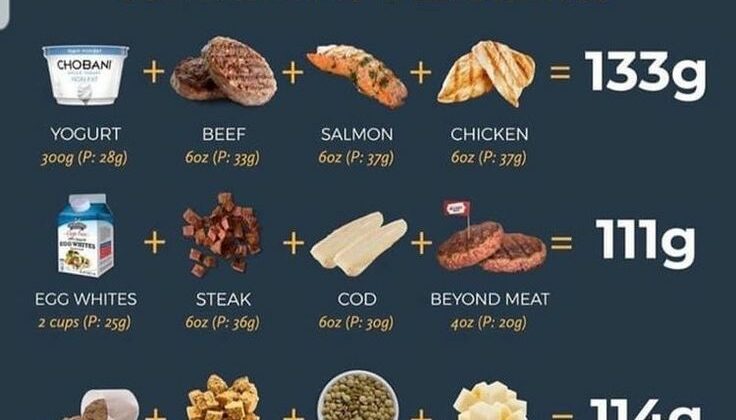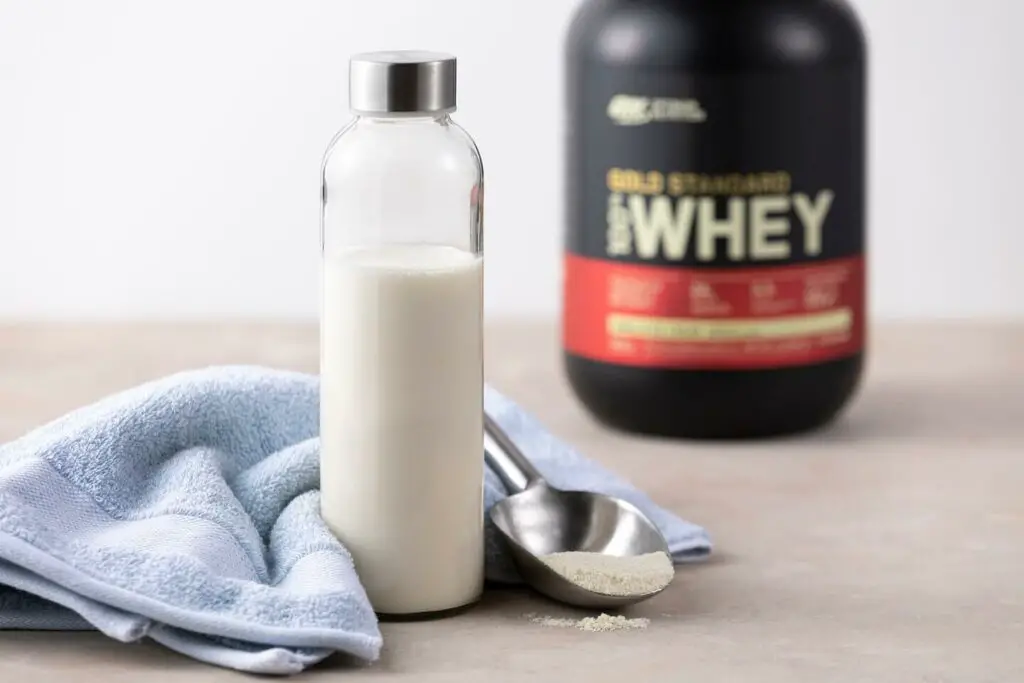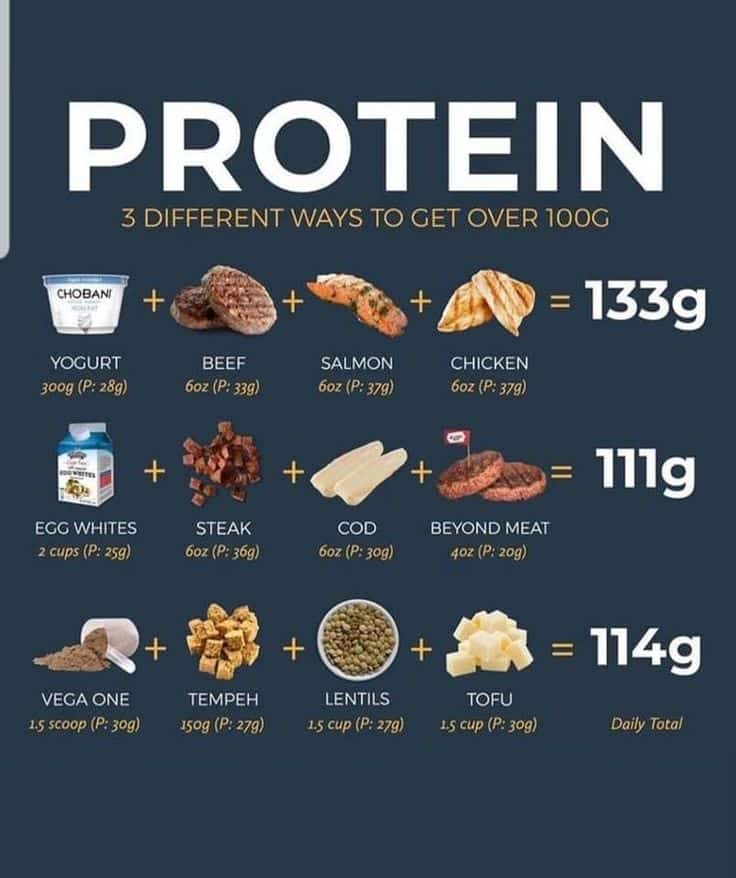
Protein Benefits: Protein is the main nutrient of food. The other two nutrients are carbohydrates and fat. It is a macronutrient that a human body needs in a large amount. These are the benefits of protein such as helps in weight loss, building new tissues and fast recovery from injuries.
It is made of amino acids. There are so many amino acids present in nature, but the body needs only 22 amino acids. The human body needs nine of the amino acids from food. These are called essential amino acids. They always come from food.
For Example, animal proteins come from meat, dairy and eggs contain essential amino acids. Plant-based proteins come from beans, grains, nuts, and soy is high in few amino acids but may lack others. A human body can get all essential amino acids with the help of a well-balanced diet.
Facts on Protein Benefits
Here are some facts about protein:
- Protein builds new body cells and also repairs muscle tissues for growth.
- Sources of protein include meat, fish, dairy, lentils, beans, and tofu.
- Insufficient protein can lead to injuries in muscles and a weak immune system.
- High consumption of protein may lead to liver problems.
Milk protein is a good source of protein. It is the major source of the building block of the human body. It maintains tissue. During the time of growth, such as childhood, and pregnancy, the body needs more protein.

People who have injuries, undergone surgery and break down muscle during exercise also need a high amount of protein.
The Protein Benefits
As we know our body uses protein to build and repair tissues. Basically, protein is a biological compound group in a human body’s cells and all organs. Every cell in the body needs protein to build tissues and recover injuries.
There are so many protein benefits such as it makes hormones, enzymes, blood and builds stronger bones, muscles, skin, and other body chemicals.
here is a list of protein benefits:
- Healthy Hairs.
- Stronger Bones.
- Builds muscle.
- Repair and make new tissues.
- Healthy Immune system.
- Skin Improvement.
- Boost Hormones.
- The body grows faster.
Protein consumption: Is there any limit?
A very common myth is that a human body can only digest 20 or 30 grams of protein at a meal, but there is no proof to support this theory. But, it can be very helpful for many people to reach their daily protein intake and complete body energy and blood sugar levels throughout the day. A variety of meal plans that can help human reach their protein goals.
Pattern 1
a small amount of protein at breakfast, a medium amount at lunch, and a High amount at dinner.
For Example:
- 10 g protein at breakfast, such as oatmeal, nuts, and berries
- 25 g protein in lunch, i.e a turkey sandwich with cheese
- 5 g in a snack, such as a granola bar
- 40 g protein in dinner, i.e chicken or beef and fish
These 4 meals a day provide 80 g of protein.
Pattern 2
- 20 g protein at breakfast, for example, a 2-eggS omelet with beans
- 15 g morning snack of cottage cheese and fruit
- 25 g lunch, for example, salad with fish
- 15 g protein-rich snack, i.e a protein shake
- 10 g dinner – lentils soup or meatless meal
This pattern also provides 80 grams of protein.

We can target to have a certain amount of protein to increase muscle growth and recovery. However, the Recommended Dietary Allowance (RDA) is 0.8 g protein per kilogram (kg) of body weight per day.
It is the minimum amount of protein for meeting nutritional requirements. we can consume the maximum amount of protein but it depends on the requirements for muscle growth.
For Example, it depends on the person’s body size and how active they are. A 6-feet, 250-pound man who rains 5 times a week for strength can absorb and use more protein than a 5-feet man who does not exercise.
An athlete needs from 1.0 to 1.6 g per kg of body weight, depending on the exercise. Recommendation range from 1.6 to 2.0 g per kg of body weight for strength or power athletes.
It is a suggestion that between 15 and 35 percent of calories should be from protein in a day. Excess protein consumption will affect a person that is not clear exactly since the effect on long-term health and disease risk depends on the type of protein.
Check it out: Eat Before or After Workout
Protein deficiency
If a person does not take enough protein, they face problems:
- lack of muscle growth
- loss of mass
- weak immunity
- Heart Diseases
- respiratory problems
A protein deficiency can affect your health. In some countries, some people develop kwashiorkor as a result of protein deficiency. It is a type of malnutrition and common during a famine.
Signs of malnutrition include swelling in the legs and possibly the face, because of edema, or fluid collecting under the skin. more symptoms are potbelly, fatigue, dry hair, and cracked nails. The person can be infected easily.
Protein food sources
According to the United States Department of Agriculture (USDA), protein can be found in common sources of foods:
- Beans and lentils: Beans and lentils are a good source of protein for vegetarians and vegans.
- 4 ounces of chicken contains 35 g protein
- 4 ounces of ground beef contains 16 g protein
- A cup of milk contains 9 g
- 1 whole egg contains 6 g
- 1 cup of black beans contains 15 g
- 2 tbsp of peanut butter contains 8 g
- Half a block of tofu contains 18 g
The other good sources of protein. such as a broiled steak, also contain high levels of fat and sodium. Salmon are lower in saturated fat and sodium. Some green vegetables, low-fat dairy products, chickpeas, and beans have more good protein and health-promoting nutrients like fiber and antioxidants.
A diet that uses these at least sometimes instead of meat, is less likely to lead to health problems. Many Vitamins, Fiber, Minerals are the benefits of protein consumption.

Leave a Reply
You must be logged in to post a comment.